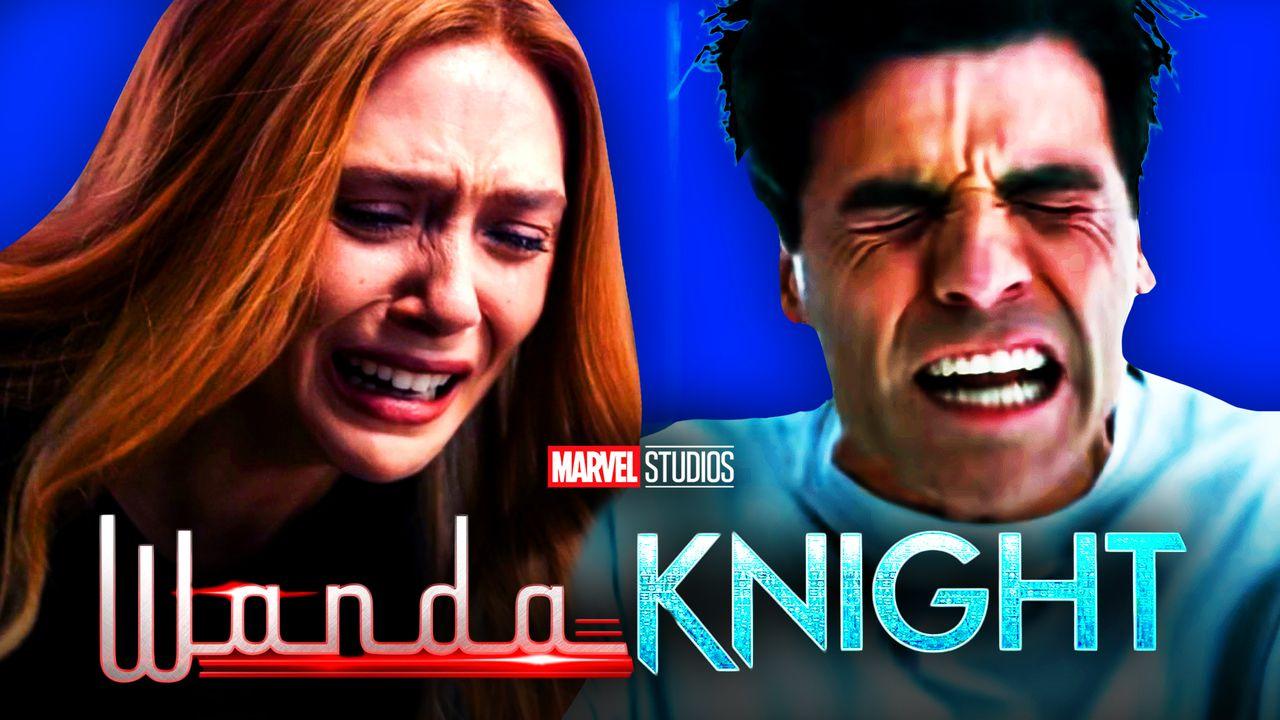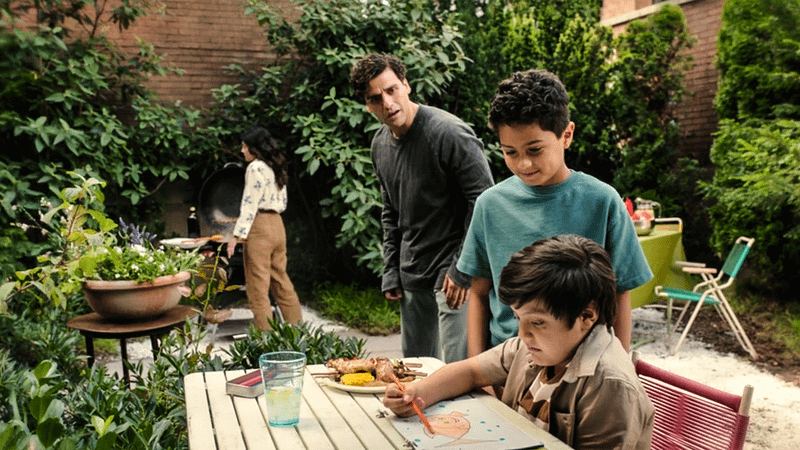
Since WandaVision's debut at the start of 2021, Marvel Studios has been pumping out premium MCU content on Disney+. Moon Knight is the latest series to make its way onto the platform, intriguing viewers week-to-week with its wacky concept and even stranger storylines. After a bombshell cliffhanger at the end of Episode 4 saw Oscar Isaac's Marc Spector and Steven Grant trapped in a mental institution, fans were expecting some answers as to what exactly is going on in the show.
Luckily, Episode 5 addressed many of the lingering questions that viewers have been asking throughout Moon Knight's season – and presented them in an interesting, yet familiar way. Marvel's latest show has taken a note from the show that kickstarted the studio's first dive into the television format and has arguably improved upon what came before.
Here's why Moon Knight did WandaVision better than WandaVision.
Moon Knight's WandaVision Similarities

Warning - the rest of this article contains spoilers for Episode 5 of Moon Knight.
WandaVision's eighth episode, "Previously On," took Wanda Maximoff on a trip down memory lane, with Agatha Harkness whisking her through the past to uncover how the Scarlet Witch was controlling Westview.
On their journey, Wanda relives the moment a Stark-tech missile hit her family's home, Hydra's experiments on her with the Mind Stone, a tender memory between her and Vision, and the moments that led to the creation of Westview's Hex.

Moon Knight's fifth episode mirrors this A Christmas Carol-esque format almost exactly, revisiting Marc Spector and Steven Grant's shared past to explore more of their history. Much like WandaVision, the flashbacks serve to inform the audience, and Steven, about Marc's history by weaving through his early years all the way to where he is now.
Episode 5 chronicles the loss, trauma, and abuse that has permeated Marc's life, addressing the death of his brother, the abuse sustained from his mother, and his exploitation at the hands of Khonshu. Saying that Marc has had a rough go of it would be an understatement.
But why is Moon Knight's rendition of this trope an improvement?
Why Moon Knight Does It Better

One of the impressive aspects of Moon Knight's penultimate chapter is the lack of a clear villain pushing the plot of the episode along. While one may question Tawaret's dubious intentions and Harrow could always be pulling the strings to get to the root of Marc's trauma for his own nefarious purposes, Episode 5 largely operates without an antagonist.
WandaVision needed Kathryn Hahn's Agatha to facilitate a deep dive into Wanda's life, but Moon Knight requires no such thing. Moon Knight is much more interested in delving into Marc's history for his and Steven's own benefit as a means to find some sort of healing for their trauma, rather than to serve a villain's scheme. This makes the whole episode feel more introspective and personal, leading to the reveals hitting just that bit harder.
Unifying Emotion and Intrigue

The lack of a villain has the added benefit of a more emotional journey for Moon Knight's characters too. The events of WandaVision's "Previously On" were undoubtedly upsetting for Wanda to relive, but they were already known to her. Agatha was unaware of Wanda's past but had no emotional connection to it. This created a sense of separation between the lack of knowledge about the reveals and the emotional link to them, but Moon Knight seeks to unify this to maximize the dramatic impact.
Steven is not only left in the dark, but he is literally Marc as well. This allows Steven to directly mirror the audience's experience of not knowing Marc's history whilst being directly impacted by it, allowing the viewer to empathize with his experience and create further sympathy towards Marc's situation.
Marvel's Darkest Story Yet

Marvel has been to dark places before, but nothing quite like this.
Moon Knight's reveal that Marc was a victim of child abuse comes as an unexpected reveal. The Marvel brand has always been about presenting superheroes as relatable figures, highlighting important issues through their stories. Marvel's identity has also been heavily associated with appealing to audiences of all ages, particularly in ensuring that younger viewers are able to enjoy their outings.
The inclusion of this darker storyline goes against this philosophy, defying what is deemed possible in an MCU project. Simultaneously, the prominence of this subject matter in a mainstream piece of media will highlight the issues of abuse to more viewers. Shows like Mr. Robot have covered topics of abuse, trauma, and mental illness before, but would have been less accessible to general audiences. Now, even more viewers will be exposed to these issues and enable them to become more informed.

Marvel Studios is clearly experimenting with different audiences, which can be seen by Moon Knight's age rating in comparison to other MCU Disney+ shows like Ms. Marvel. This plotline should be a sign of things to come.
As surprising as Episode 5's reveal was, it also manages to stay true to the actual mental illness it is portraying. Dissociative identity disorder often occurs as a result of overwhelming traumas or abuse during childhood, which is aptly reflected in its portrayal in Moon Knight. Above all else, Marvel ensured that DID was being represented authentically, taking care not to trivialize the disorder in its portrayal nor shy away from its reality.
Episode 5 of Moon Knight and the full series of WandaVision are streaming now, exclusively on Disney+.












